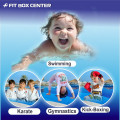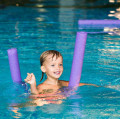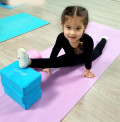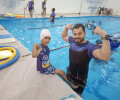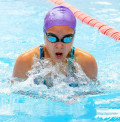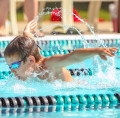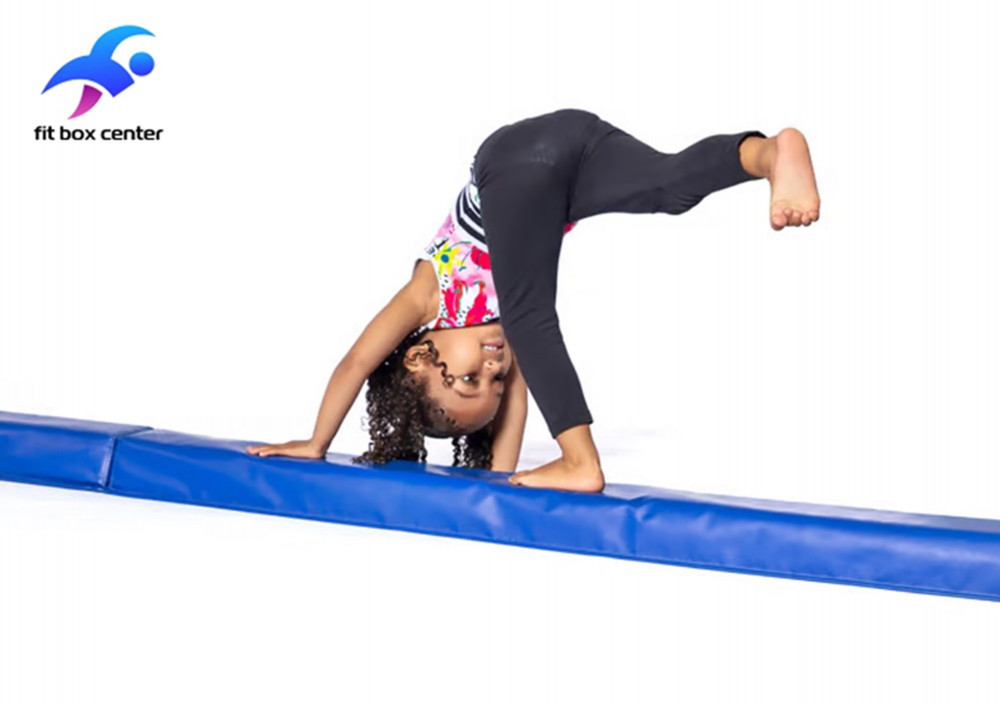
Gymnastics A Fun Path to Physical Development for Kids
2024-04-26 - gymnasticGymnastics isn't just about flips and somersaults; it's a
dynamic activity that offers numerous benefits for children's physical and
mental development. From enhancing flexibility to fostering discipline,
gymnastics provides a solid foundation that can be applied to any sport. Let's
explore why gymnastics is an exciting way for kids to develop essential skills
that transcend the gymnasium.
Enhancing Flexibility and Coordination
Gymnastics involves a wide range of movements that require
flexibility and coordination. From stretching exercises to mastering intricate
routines, kids gradually improve their range of motion and body control. These
skills not only enhance performance in gymnastics but also carry over to other
physical activities.
Improving Strength and Endurance
The demanding nature of gymnastics builds strength and
endurance in young athletes. Whether they're supporting their body weight on
the parallel bars or holding challenging poses on the balance beam, kids
develop muscle strength and stamina through consistent practice. This physical
resilience serves them well in various sports and daily activities.
Boosting Cognitive Development
Gymnastics isn't just a physical workout; it's also a mental
exercise that stimulates cognitive development. Learning complex routines and
mastering new skills require focus, problem-solving, and spatial awareness.
Through gymnastics, children sharpen their cognitive abilities, improving their
academic performance and overall cognitive function.
Fostering Discipline and Perseverance
Success in gymnastics is built on discipline and
perseverance. Kids learn the value of practice, patience, and dedication as
they strive to master challenging moves and routines. They also develop
resilience in the face of setbacks, understanding that progress often comes
through perseverance and hard work.
Safety Measures in Gymnastics
While gymnastics offers numerous benefits, safety is
paramount. Parents and coaches must ensure that children practice gymnastics in
a safe and supervised environment. Proper coaching, adequate warm-up and
cool-down routines, and the use of appropriate equipment are essential for
preventing injuries and promoting long-term participation.
Gymnastics as Foundation for Other Sports
One of the unique aspects of gymnastics is its
transferability to other sports. The skills and attributes developed in
gymnastics, such as balance, agility, and body awareness, serve as a solid
foundation for various athletic endeavors. Whether a child pursues soccer,
basketball, or swimming, their experience in gymnastics can give them a
competitive edge.
Getting Started with Gymnastics
If you're considering enrolling your child in gymnastics,
here are some steps to get started:
Find a reputable gymnastics center: Research local gyms or
clubs that offer quality gymnastics programs for children.
Understand different levels and programs: Learn about the
various levels and classes available, ranging from recreational to competitive
gymnastics.
Select the right equipment and attire: Make sure your child
has appropriate gymnastics attire and access to well-maintained equipment for
practice.
Famous Gymnasts Who Started Young
Many renowned athletes got their start in gymnastics at a
young age, laying the foundation for their future success. From Simone Biles to
Nadia Comaneci, these athletes inspire young gymnasts to dream big and pursue
their goals with passion and dedication.
Parents' Role in Supporting Kids' Gymnastics Journey
As a parent, you play a crucial role in supporting your
child's gymnastics journey:
Provide encouragement and motivation: Cheer your child on
during practices and competitions, and offer words of encouragement to keep
them motivated.
Balancing support with independence: Support your child's
goals while allowing them to take ownership of their gymnastics experience and
develop independence.
Understand the demands of gymnastics: Recognize the physical
and emotional demands of gymnastics and provide support and understanding as
your child navigates challenges and setbacks.


